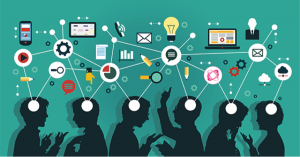 When it comes to Internet adoption, there seems to be a missing link between access and meaningful use. While there are still significant barriers to Internet access for many Americans, policy makers and industry leaders are looking to the next step. The meaningful use of technology and broadband Internet requires a digital skill set that many Americans are lacking.
When it comes to Internet adoption, there seems to be a missing link between access and meaningful use. While there are still significant barriers to Internet access for many Americans, policy makers and industry leaders are looking to the next step. The meaningful use of technology and broadband Internet requires a digital skill set that many Americans are lacking.
The Broadband Outreach Center has a few resources compiled to help communities and individuals make good use of broadband access.
First, check out our Public Access Page which lists locations across the state where public Wi-Fi is available.
Next, our Digital Literacy Page links training modules for computer basics, job computer skills, and workplace skills.
Discussion of digital literacy and digital inclusion often get hung up on terminology and definitions. At the Net Inclusion Summit in May 2016, a National Digital Inclusion Alliance (NDIA) working group was tasked with defining some key terms to aid in the discussion of digital inclusion. The following definitions were created:
Digital Equity:
Digital Equity ensures all individuals and communities have the information technology capacity needed for full participation in our society, democracy, and economy. Digital Equity is necessary for civic and cultural participation, employment, lifelong learning, and access to essential services.
Digital Inclusion:
Digital Inclusion is the activities necessary to ensure that all individuals and communities, including the most disadvantaged, have access to, and use of, information and communication technologies (ICTs). This includes 5 elements:
- Affordable, robust broadband Internet service.
- Internet-enabled devices that meet the needs of the user.
- Access to digital literacy training.
- Quality technical support.
- Applications and online content designed to enable and encourage self-sufficiency, participation, and collaboration. Digital Inclusion must evolve as technology advances and recognizes that access to, and use of, ICTs are an essential element for participation in our society, democracy, and economy.
The NDIA works to help policymakers connect with broadband providers, advocates, and local/regional digital inclusion supporters. The group has built a national coalition to keep stakeholders informed and to create to partnerships.
If you are aware of any great digital literacy resources available for Utahns please contact Kendall Rathunde at (801) 538-8742 or krathunde@utah.gov about linking these resources to our site.